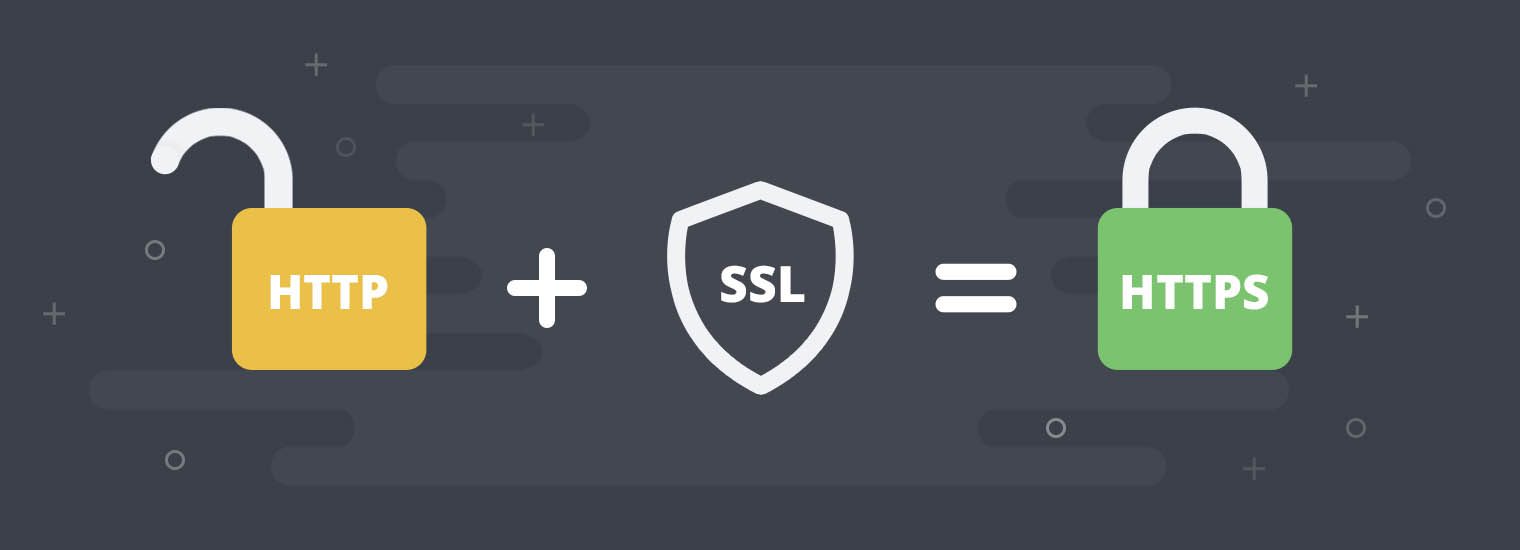SSL certificate and its importance

An SSL certificate is a digital certificate that verifies the identity of a website and allows for a secure connection. Secure Sockets Layer (SSL) is an authentication protocol that establishes an encrypted connection between a web server and a web browser. SSL certificates must be installed on a company’s or organization’s website in order to encrypt internet purchases and keep customer details confidential and protected.
In a nutshell, SSL protects internet connections by preventing hackers from reading or altering data sent between two networks. SSL wraps the page you’re visiting if you see a padlock icon next to the URL in the address bar.
There have been many variations of the SSL protocol since its introduction about two and a half decades ago, many of which have developed into security issues at some stage. TLS (Transport Layer Security) was the updated and improved version that followed, and it is still in use today. The initials SSL, on the other hand, stuck, and the current variant of the protocol is now known by that name.
Working of SSL
SSL protects data sent between users and websites, even between two networks, by making it difficult to read it. It scrambles data in transit using cryptography algorithms, preventing hackers from decoding it as it travels across the network. Names, emails, credit card numbers, and other financial details are among the data that may be considered confidential.
The procedure works in the following steps
- A browser or server tries to bind to an SSL-secured website (i.e., a web server).
- The web server is asked to identify itself by the browser or server.
- In reply, the webserver sends a copy of its SSL certificate to the browser or server.
- The SSL certificate is checked by the browser or server to see if it is trusted. If it does, the web server receives a notification.
- After that, the webserver sends a digitally authenticated acknowledgment, which initiates an SSL encrypted session.
- Between the viewer or user and the webserver, encrypted data is exchanged.
An “SSL handshake” is a term used to describe this operation. Although it can seem to be a lengthy procedure, it is completed in just a matter of seconds.
The acronym HTTPS (which stands for HyperText Transfer Protocol Secure) appears in the URL when a website is secured by an SSL certificate. Only the letters HTTP, i.e., without the S for Safe, can appear without an SSL certificate. In the URL address bar, a padlock icon will also appear. Visitors to the website would feel more secure as a result of this.
Why is it important?
SSL certificates are required for websites in order to protect user data, verify website ownership, prevent attackers from producing a fake version of the site, and express loyalty to users.
It is important to keep data private whether a website asks people to sign up, submit sensitive information such as credit card numbers, or access confidential information such as health benefits or financial statistics. SSL certificates help to keep online connections confidential by assuring people that the website they are using is legitimate and secure to exchange personal information with.
The fact that an SSL certificate is needed for an HTTPS web address is more applicable to businesses. HTTPS is the protected version of HTTP, which ensures that HTTPS websites use SSL to encrypt their traffic. HTTP pages without SSL certificates are marked as insecure by most browsers. This gives a direct message to consumers that the web isn’t trustworthy, encouraging companies to move towards HTTPS that haven’t yet done so.
Moreover, Google has also updated its policy for HTTPS websites and they have the upper hand as compared to others in their search rankings. Thus, for businesses, it is supremely important that the websites have their links listed higher on the search ranking of Google. As a result, more and more businesses are moving towards this secure trend.
One of the most important factors of SSL is that it improves the customers’ trust. SSL certificates are essential for consumer trust, in addition to encryption and authentication. The easily identifiable signs warn consumers that the information they send will be protected. They can also see your organization’s info if you’ve configured advanced types of SSL such as OV or EV SSL. They’ll be much more likely to do business with you or even return to your site once they realize you’re a reputable company.
Furthermore, Google has agreed to mark domains that do not have an SSL Certificate built on their website from 2018 onwards in order to have a smoother online surfing experience. If someone does not follow this law, all of the world’s most common web browsers, such as Google Chrome and Firefox, would be disabled. Mozilla would punish them by displaying a ‘Not Safe’ error message in the URL bar. The time is not far away when these browsers will completely block the servers which do not comply with the SSL certificate.
In conclusion, SSL has become an extremely important part of websites. As the use of the internet is exponentially increasing throughout the globe, it is important that websites follow the same steps of security.

Easy As 1…2…3…
We designed a quick and easy way to give you an estimate for your project. You will have a ballpark rate in less than a minute. If your criteria doesn’t fit into the program, please reach out to us. We will help you reach your expectations for your business.
Send us a message and we will get back to you within 24 hours. We are here to help you reach your expectations for your business.
Portfolio
We record our work for your entertainment! So you might as well check it out.

